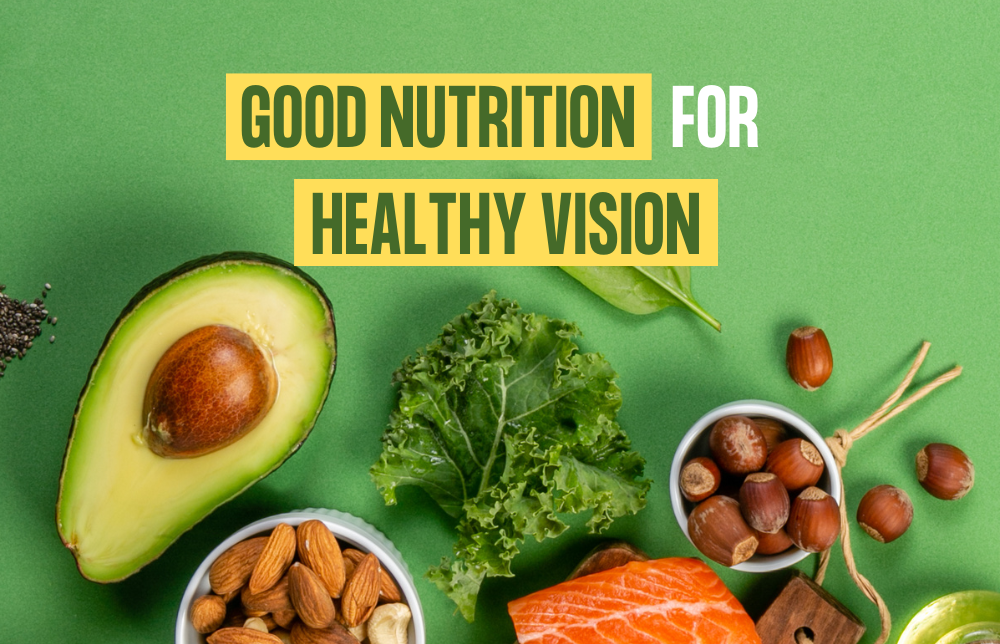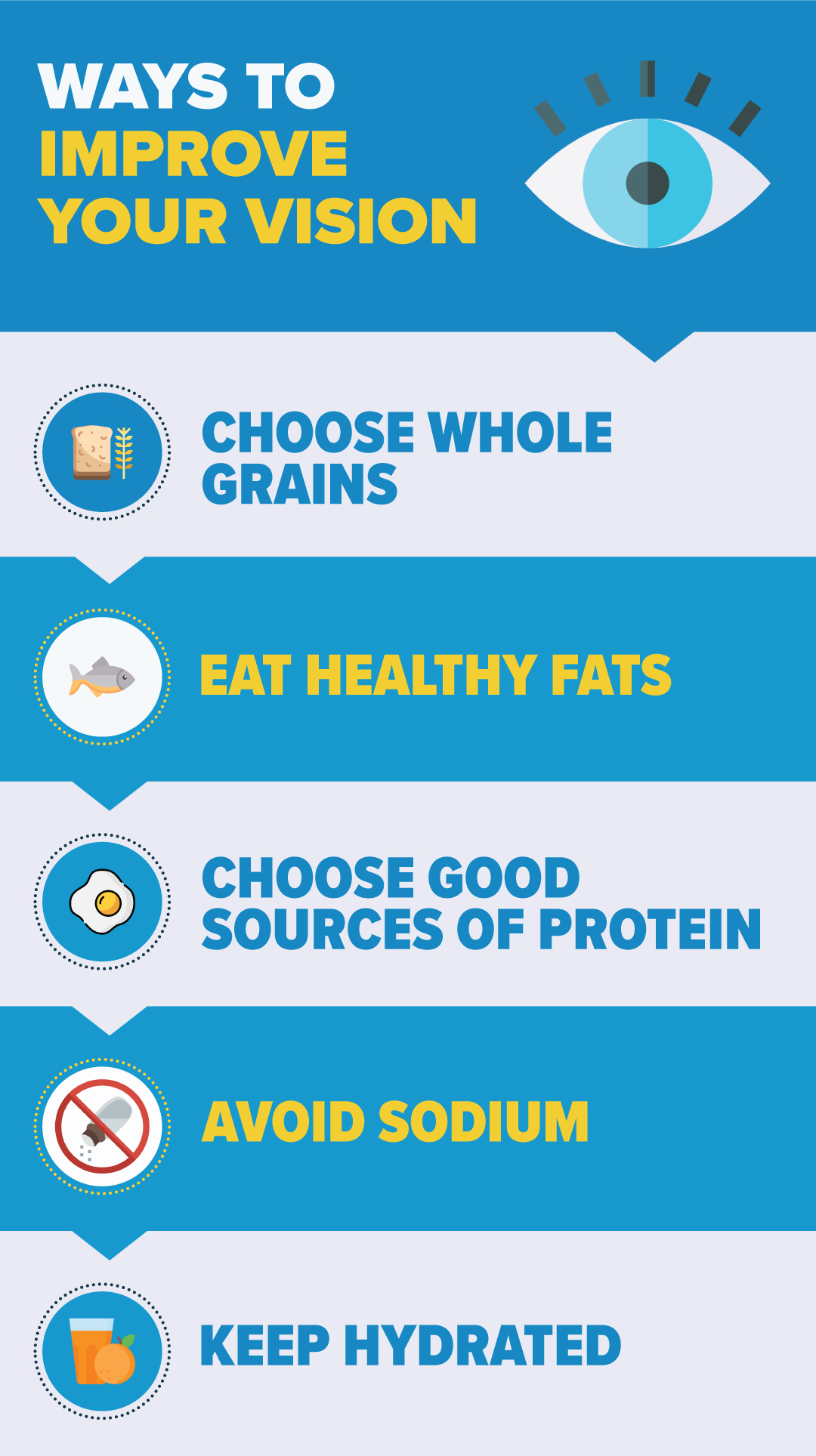
Good Nutrition for Healthy Vision
September 27, 2022
We’ve all heard that the reason rabbits have healthy vision is because they eat so many carrots. While to some degree that story is an exaggeration, it’s true that the foods you eat and the dietary supplements you take play an important role in your overall health as well as the health of your eyes.
For example, a diet high in saturated fat and sugar may increase your risk of certain eye diseases that can lead to impaired vision or even blindness. But making healthy lifestyle changes, including good nutrition, can help delay or prevent many eye-related problems.
Diet, Antioxidants and Healthy Eyes
The risk of cardiovascular disease, diabetes and eye conditions including cataracts and age-related macular degeneration (AMD) are substantially reduced in people who eat diets rich in vitamins, minerals, healthy proteins, omega-3 fatty acids and lutein.
Antioxidants, like vitamins A and C, can help reduce damage related to oxidizing agents (free radicals) that can cause age-related eye diseases. Fresh, colorful fruits and vegetables are excellent sources of these nutrients. In fact, experts recommend that you consume at least five to nine servings of these foods daily, with dark green or brightly colored fruits and vegetables having the most antioxidant power.
Lutein has been shown to protect the retina from oxidative changes caused by ultraviolet light. Spinach and kale are excellent food sources of lutein and zeaxanthin, which are also found in sweet corn, peas and broccoli.
Vitamin A, vital for healthy vision, is found in orange and yellow vegetables such as carrots and squash.

Other ways to improve your vision:
- Choose whole grains Sugars and refined white flours commonly found in breads and cereal may increase your risk of age-related eye diseases. Instead, choose 100 percent whole-grain breads and cereals that have lots of fiber, which slows down the digestion and absorption of sugars and starches. Fiber also keeps you feeling full, which makes it easier to limit the amount of calories you consume.
- Eat healthy fats The omega-3 essential fatty acids found in fish, flaxseed oil, walnuts and canola oil help prevent dry eyes and possibly cataracts. Eat fish or seafood 2x a week or take flax oil every day.
- Choose good sources of protein Limit your consumption of saturated fats from red meats and dairy products that may increase your risk of macular degeneration. Choose lean meats, fish, nuts, legumes, and eggs for your proteins. Most meats and seafood also are excellent sources of zinc. Eggs are a good source of lutein.
- Avoid sodium High sodium intake may add to your risk of cataract formation. Use less salt and look for sodium content on the labels of canned and packaged foods. Stay below 2,000 mg of sodium each day. Choose fresh and frozen foods whenever possible.
- Keep hydrated Round out a healthy diet with low-fat dairy products such as skim or 1% milk for calcium, and healthy beverages such as 100% vegetable or fruit juices, non-caffeinated herbal tea and water. Proper hydration also may reduce irritation from dry eyes.
Visit your eye doctor
Along with diet and nutrition, regular checkups are also essential for healthy vision. Get a Vision Plan from IRTA and AMBA today. It includes access to thousands of doctors, coverage for an annual vision plan, and big savings on new glasses, lenses, and more! Join now at www.AMBAdentalvision.com or call 866-979-0497.
RECENT POSTS
AMBA’s Essential Insights in Dental Health: Understanding Cavities
Have you ever experienced pain or noticed persistent sensitivity in your teeth? You might have a cavity. Cavities are common,
Read More
Keep “Looking” Your Best: The Unique Eye Health Challenges for Women Over 55
March is Women’s History Month, a time to celebrate women's contributions to American history and society. It’s
Read More

AMBA’s Eyewear Trends for 2025: Stylish and Practical Options for Older Adults
The days when eyeglasses were just a functional accessory to help improve vision are long gone. Today, eyeglasses are one of
Read More

Be Ready for Unexpected Expenses in Retirement. AMBA Has the Tips You Need.
Whether you’re already retired or it’s coming up on the horizon, planning your retirement is essential. Many people
Read More

